
In Italy, young people who are unemployed and not in school or training programs represent 20 percent of the population. Vocational training is as an educational path that serves as a highly effective bridge between work and school.
Italy, Europe’s third-largest economy, has close to 2 million children living in poverty, according to UNICEF. The poverty rate has risen in the wake of Europe’s economic crisis. Unemployment is at its highest level since the late 1970s—with the overall jobless rate at 12.5 percent and youth unemployment as high as 41 percent.
Salesian programs across Italy help youth who are unable to attend school and others who drop out to work at the few jobs available to them. A growing number of children work as laborers on farms and others have turned to the sex trade to help support their families. Those in poverty often live without adequate shelter, hot water, regular meals and health care.
The Salesian-run Don Bosco Boys’ Town in Rome started a new program to assist youth in need of extra support. The semi-residential community is aimed at youth 10- to 16-years-old who are living in difficult conditions and have been referred to the program by social service departments in the area. Salesian missionaries are working to safeguard the rights of these youth and help them focus on school, as well as address ongoing behavior issues and difficulties in their home environment.
Salesian missionaries are also hoping the project creates meaningful collaboration between departments to promote social and educational action on behalf of children and families. Most of the youth in the program come from families who are dealing with economic and social difficulties, and have many problems within the family structure.
The intervention provided at the Salesian programs aims to stop the situation from getting worse and prevents, if possible, children needing to be removed permanently from the home. Salesian missionaries bring together the child, their family, teachers and others involved in their lives to address issues and put the appropriate supports in place. Youth still live with their own family but spend the afternoon at the Salesian program. Here, through study, play and structured family time such as lunch and other activities, youth learn to strengthen their emotional relationships and to build a social network of support in addition to their family.
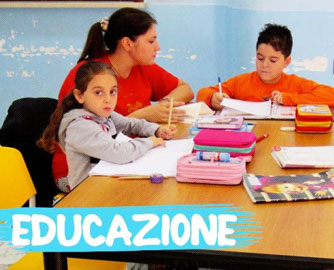
After 40 years, vocational training courses are starting once again at the Don Bosco Educational Center in the Doganella district of Naples. To celebrate the event, a conference titled “Possible Futures” was held at the Salesian Institute Menechini to discuss more about the educational center and the vocational training courses that will be offered. These courses have been made possible by Salesian missionaries working in collaboration with leaders in the Campania region and private donors. The educational center will offer vocational training for youth to provide them the skills needed to find and retain stable employment.
In addition, Salesian missionaries launched the Young Drivers Project to train youth as truck drivers to meet Italy’s demand for 180,000 drivers who have more specialized technical piloting skills for high-tech cockpits. The project is in collaboration with the Unione Nazionale Rappresentanti Autoveicoli Esteri (UNRAE/National Union of Foreign Autovehicle Representatives) and funded by the Cargo Truck Association. The project launched through the sector’s largest associations as well as the National Salesian Centers Vocational & Professional Training Association.
The Italian Salesian association, Piccoli Passi Grandi Sogni (Small Steps, Big Dreams), has set up a new project called “Pizzoratorio,” in Torre Annunziata, a city in Naples. Through the “Pizzoratorio” project, vocational training will be provided at the local Salesian oratory for youth to earn a professional qualification as pizza makers. The project has already received the support of the Salesians per il Sociale (Salesians for Social) and of the Don Bosco Mondo Foundation.
Salesian missionaries with CNOS-FAP, the National Salesian Center for Vocational Training and Ongoing Education, have entered into a partnership with Yamaha to provide skills training in the automotive and motorsports field at the Don Bosco Social Works Vocational Training Center in Sesto San Giovanni near Milan.
At the end of 2019, the Don Bosco Center created a special program to begin teaching its students repair work on Yamaha two-wheeled vehicles thanks to a prestigious collaboration with the Yamaha Technical School. Yamaha will work to qualify Salesian education and its tools and instrumental resources, such as laboratories, classrooms and technical equipment, to raise the professional, technological and operational skills of both its teachers and students. As part of this partnership, during the fourth year of study, the best students will be offered training internships at Yamaha and in the Yamaha Assistance Network to create and foster their experience in the workforce.
In December 2015, the Salesian-run Teresa Gerini Vocational Training Center in Rome opened the first agricultural machinery laboratory for professional training. The laboratory is part of TechPro2, a leading technical training project aimed at providing a skilled workforce of highly qualified personnel for the car and commercial vehicles industry. Started in 2008, the TechPro2 project is a collaboration between Salesian missionaries, Fiat Chrysler Automobiles and CNH Industrial, an Italian company that designs, produces and sells agricultural and construction equipment.
The laboratory is the first of its kind and was made possible through a partnership with New Holland Agriculture, a leading global manufacturer of agricultural machinery. The Teresa Gerini Vocational Training Center is now able to offer a specialist training course for 20 students who have already completed a three-year certificate of professional qualification. Students enrolled in the course will spend half their time taking courses at the training center and half their time gaining experience at companies in the New Holland dealer network or within the CNH Industrial group. Graduates of the program will be highly skilled technicians who will be able to meet the demands of the labor market.
The TechPro2 project is currently operating in 57 Salesian training centers around the globe with more than 9,300 students accessing more than 240,000 hours of training in eight different languages. TechPro2 aims to help train youth to enter the workforce while meeting the employment needs of the industry.
Salesian missionaries with the Salesians of Social Welfare are impacting youth and their families in programs across Italy. One program in particular, the “I care about you project,” reaches out to homeless youth who gravitate to the central train stations of Italian metropolitan areas. Many of these homeless youth are migrants and foreign minors who come to Italy searching for a better future.
Every day these youth are at risk of becoming involved in criminal activities or being sexually exploited. Salesian missionaries estimate that there are close to 5,000 of these invisible children. They migrated from the world’s poorest countries and arrived or were left alone once in Italy. They lack access to showers, bathrooms, food, shelter and clothing.
The Salesian project aims to connect with these youth, build their trust, and try to reintegrate them into society through reception and support. The activities, sustained thanks to the Intesa San Paolo charitable fund, are taking place in Turin, Naples and Catania in the neighborhoods adjacent to the cities’ train stations. A network composed of street educators, psychologists and volunteers greet the children and offer support and protection. Once in the program, children are offered shelter and their basic needs are met. They are also given the opportunity to take an Italian language course, receive legal assistance, acquire professional skills and find stable employment.
The E.T. Social Cooperative, also known as Educators in the Territory or Neighborhood Educators, is affiliated with the Salesians of Social Welfare (SCS/CNOS Federation) and recently opened Casa di Giò youth home on Jan. 9. Casa di Giò is located in Turin and is the first residential group apartment operated by the E.T Social Cooperative. The new group home aims to offer temporary accommodation for young males between the ages of 16 and 21.
Developed in response to the growing needs of Turin and its metropolitan district, Casa di Giò helps its young residents by fostering growth through social and educational programs. The shared living space provides a family-like atmosphere and is supported by educators.
The group home serves youth who have experienced difficult challenges in their past and are now in need of support, friendship and mentors who are able to help them turn their lives around. It offers temporary residence to youth so they can determine their next steps and access educational opportunities. The home’s positive setting helps residents connect to work and their community.
Salesian missionaries with the Salesians of Social Welfare operate Café Bijoux in Verona. This café serves as an artistic workshop for women who come from challenging circumstances. Some of the women have abused drugs or contend with mental health issues while others are homeless and living on the streets. Still others are grappling with complex family situations. Many of these women are in need of services but will not ask for help. The café workshop is a way to invite women into the program while allowing them to keep their dignity intact.
Launched in 2012, Café Bijoux enables struggling women to put their skills and talents to use. Participants are able to sew, crochet or create other works of art. These items are then sold during fairs and markets in the Verona area. Café Bijoux also serves as a meeting place for women to talk, drink coffee, prepare desserts and connect with others. It’s a respite from the everyday struggles in their lives.
Currently, more than 40 women from different countries are engaged in the Café Bijoux program. One participant, Princess, had a rough start in life having been exploited while she was young and has struggled since then because of a mental illness. Through the program, she has obtained an occupational internship. She cooks, shops, takes public transport and has become a woman with self-determination living a life of dignity and freedom.
Café Bijoux has a new kitchen space which serves as an excellent resource to promote knowledge of nutrition and foods from other cultures. It also provides a space for women to create birthday cakes and enjoy special celebrations with each other, improving their morale.
In addition, CIOFS-FP is run by Salesian sisters with Daughters of Mary Help of Christians and provides skills training to help women gain employment, particularly helping them toward entrepreneurship. While the main CIOFS-FP organization is located in Rome, there are smaller training centers located throughout Italy. More than 90 percent of women graduating from its programs find employment.
The Salesian sisters started their work with houses for women and then an oratory. There were also family workshops for young women and girls where sewing at various levels was taught. The sisters also held evening schools for young women who were working in factories. Later, the sisters opened agricultural, artisan and business schools. The education provided has constantly changed and kept up with the evolving needs of the work sectors within Italy and the smaller communities were the centers are located.
Salesian missionaries have launched a new group apartment in the town of Casale Monferrato in the Piedmont region in Italy. The group apartment was set up to support non-accompanied foreign minors and Italian minors who are working to become self-sufficient.
Salesian missionaries have been challenged by the number of migrants and other unaccompanied youth looking for shelter, support and work in cities across Italy. For unaccompanied foreign minors, Salesian missionaries launched 58 projects including first- and second-level reception centers, Italian language courses, job placement services, legal assistance and more. These projects have impacted 4,068 migrant youth.
The new group apartment can accommodate up to six young people and is part of the Salesian oratory and parish in Casale Monferrato. Youth are able to live in the apartment while going to school and participating in the Salesian community. Salesian missionaries want to ensure that the apartment residents have personal autonomy as well as experience social and cultural integration so that they are able to build relationships locally, be included in school and have opportunities for professional or vocational pathways to work.
From 2020 to 2021, Salesian Missions facilitated the “Salesian Solidarity with Italy: the Emergency Response to COVID-19” project. The project was made possible with support from the U.S. Agency for International Development (USAID), the U.S. Government’s main development agency operating in more than 100 countries worldwide.
The project aimed to impact more than 24,000 people including students and other young people, teachers, families, and migrants and refugees. Salesian Missions worked with Salesian International Volunteering for Development (VIS) and local Salesian partners CNOS-FAP, the National Salesian Center for Vocational Training and Ongoing Education, and SCS-CNOS Federation, Salesians for Social Welfare to implement project activities.
In addition to educational activities aimed to strengthen remote learning, the project focused on much needed food, shelter, and mental health and social support for poverty-stricken families and migrants in Catania, Sicily, through local partner Don Bosco 2000. A temporary reception center for migrants and refugees was set up to provide shelter to 10 vulnerable migrants coming from Algeria, Niger, Egypt, Gambia and Senegal.
The Salesian Stop Human Trafficking campaign was launched in October 2015 by Salesian missionaries in Italy and raises awareness of the dangers of youth migration. With a focus on youth leaving countries in Africa in search of a better life in Europe, the campaign aims to prevent young migrants from becoming victims of crime and exploitation. The campaign is part of an initiative promoted by the Salesian-run International Voluntary Service for Development (VIS) and the Don Bosco Mission Association in Turin.
By providing analysis and research on the real reasons for migration, the Stop Human Trafficking campaign informs potential youth migrants of the risks of the journey and the real chances of success while giving individual guidance to those who want to leave. It works to deter young people from leaving countries where they are most at risk of human trafficking such as Ghana, the Ivory Coast, Ethiopia and Senegal. In collaboration with Salesian missionaries in Africa, the campaign also raises funds to help with program development in targeted countries in Africa.
The project, which will span five years, is active in 14 Salesian programs in Ethiopia, Ghana, Senegal, Mali, Nigeria and Liberia. It launched with an awareness campaign to inform thousands of youth and their parents of the many risks of traveling to Europe and the difficulties they may encounter once they reach their destination.
In addition, the Siamo Umani (We are human) project is carried out by the Salesian Social Cooperative within the Sacred Heart Youth Center in Rome, located next to Termini Station and the Basilica of the Sacred Heart founded by Don Bosco himself. The project helps young refugees and Italians find job placements and was recently selected as an inclusion model at the Global Refugee Forum in Geneva.
Siamo Umani was founded in 2014 by two young married couples, Cristina and Giuseppe and Francesco and Antonella, with the help of Salesian missionaries. Their goal was to connect young refugees seeking services at the Sacred Heart Youth Center to job placements and fulfill the needs of community residents like the elderly. The goal was to bridge a gap between those new to the country and residents who might be able to help refugees acclimate easier.
The project has been successful to date. Its initiatives have grown and diversified and now include assistance for those wishing to start their own small businesses by creating and selling gadgets and homemade crafts.
Salesian missionaries are celebrating the 100th anniversary of the San Paolo Oratory located in Turin. The oratory was launched on Dec. 8, 1918 in an impoverished Turin just after World War I. It was a place that welcomed and educated children and older youth in need and its courtyard served as a gathering place for families who were employed in local factories. Today, the mission continues.
The San Paolo courtyard is open every afternoon and welcomes local youth, families and Scout groups, and also hosts sports activities. Currently, the oratory is in the process of developing a hospitality program to connect with the many out-of-town university students who live in the neighborhood.
In addition, Salesian missionaries with the Salesians of Social Welfare are impacting Italian youth and their families through the Don Bosco House project. Salesian missionaries note that in many cities and towns in Italy there is a lack of educational opportunities for poor youth as well as a lack of spaces to participate in artistic, cultural and social activities. The Salesian Don Bosco House project aims to remedy this situation by guaranteeing youth educational support and by providing opportunities for them to engage in extra-curricular activities like art workshops, music courses and sports.
Don Bosco Houses are located in many at-risk neighborhoods in Italian cities. There is a Don Bosco House in the Candelaro district of Foggia, the Sant’ Agabio of Novara and in the city of Locri. These are popular working-class areas where the school dropout rate is very high.
Last year, thanks to the Don Bosco House, several secondary students who are a part of the local Cassiopeia Association in Novara were able to access school support, after-school activities, art and musical workshops and literacy courses for foreign minors.
Forty students attending the Salesian oratory in the Salesian community of Santa Chiarra in Palermo had access to school supplies including tablets for online learning and pens, pencils and notebooks thanks to donor funding from Salesian Missions. The funding also covered the costs for sanitizing gels, a machine to sanitize rooms and food for the families of the children at the oratory.
Most of the children attending the oratory are between 6 and 15 years old and come from families who have a low income. Most of their parents are unemployed or illegally employed, and some have fathers in jail or under house arrest. Twelve families were supported through this initiative.
More than 400 youth have taken part in the Salesian project “Urban Re-GenerAction: young ideas in the urban outskirts. Experiences of active and supportive citizenship for/with the new generations.” Currently nearing its conclusion, the project was launched in July 2017. Since then, 16 programs have participated, facilitated by the Salesians of Social Welfare and the socio-cultural youth clubs, Italian Youth and Social Tourism and Cinecircoli Giovanili Socioculturali.
The project aimed to provide strategies on how to promote forms of active citizenship and social solidarity among youth. It served as a way for youth to engage in projects that helped clean up their communities and made them more beautiful. Participants gained the opportunity to understand community challenges and provide ideas on how to make things better.
From Italy

From Italy
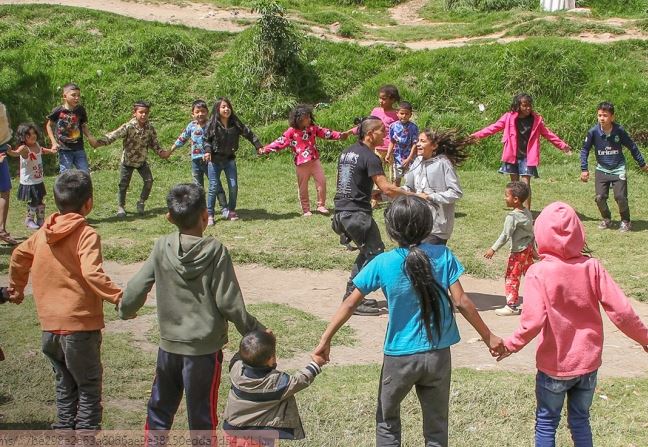
Salesians also develop programs to give youth opportunities in home countries. NEW ROCHELLE, NY (Dec. 18, 2024) Salesian Missions, the U.S. development arm of the Salesians of Don Bosco, joins humanitarian organizations and the in
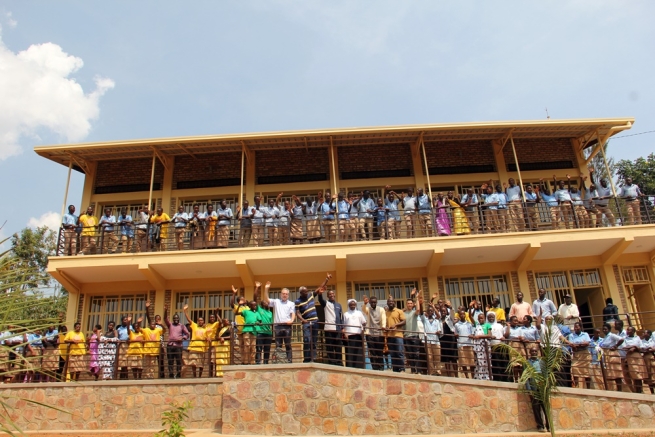
Salesian missionaries educate more than 1 million youth. NEW ROCHELLE, NY (Oct. 5, 2024) Salesian Missions, the U.S. development arm of the Salesians of Don Bosco, joins humanitarian organizations and countries around the globe in
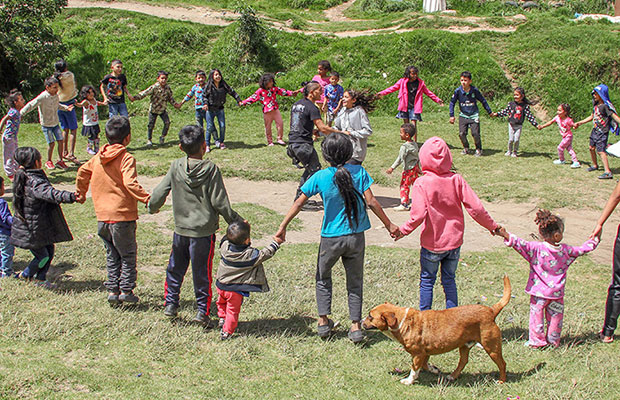
Living his life’s vocation on the streets of Turin, Italy, John Bosco never refused to help a poor child in need. To him, every marginalized and exploited young person deserved equal opportunities for education and employment. O
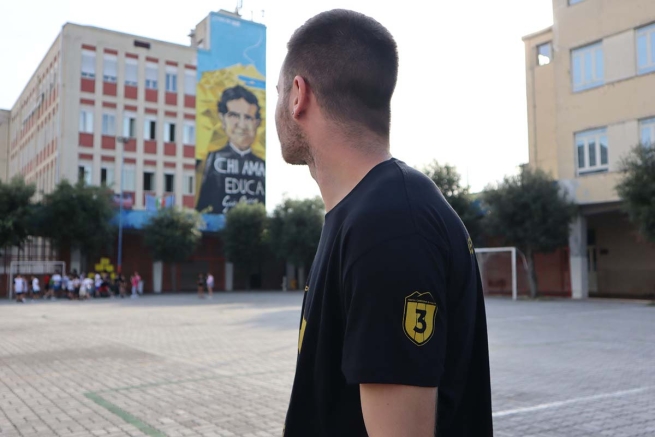
Salesians help migrants and their families access resources in their new country. NEW ROCHELLE, NY (Sept. 29, 2024) Salesian Missions, the U.S. development arm of the Salesians of Don Bosco, joins Catholic organizations around the
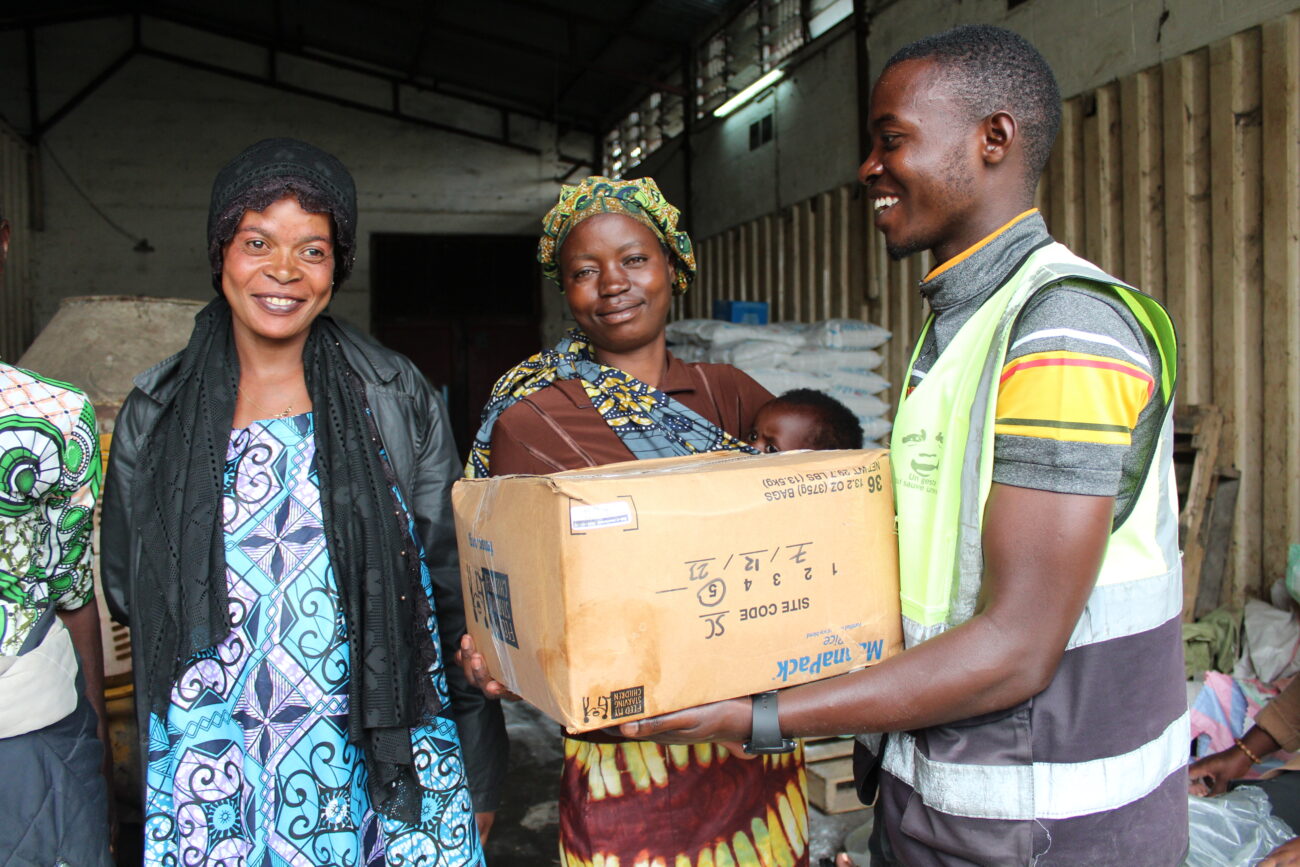
Salesian missionaries work in conflict-ridden places across the globe. NEW ROCHELLE, NY (Sept. 21, 2024) Salesian Missions, the U.S. development arm of the Salesians of Don Bosco, joins humanitarian organizations and countries aro
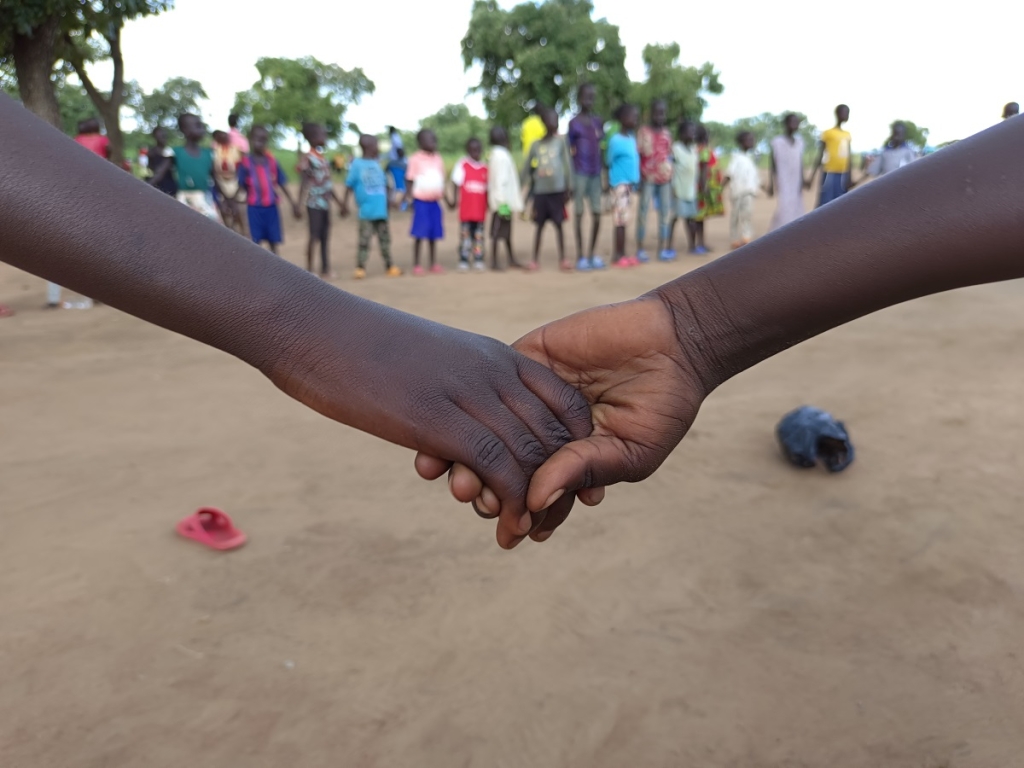
Salesians also provide direct support of basic needs for refugees and internally displaced people. NEW ROCHELLE, NY (June 20, 2024) Salesian Missions, the U.S. development arm of the Salesians of Don Bosco, joins humanitarian orga
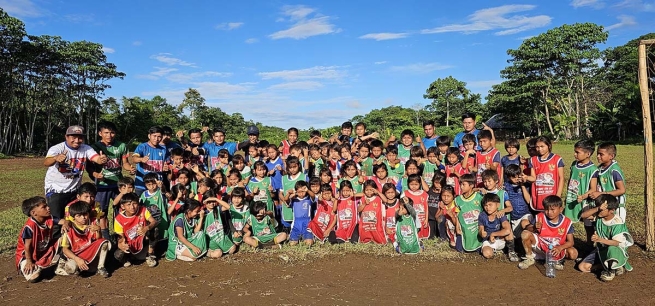
Salesian missionaries provide sports programming in schools and youth centers. NEW ROCHELLE, NY (April 6, 2024) Salesian Missions, the U.S. development arm of the Salesians of Don Bosco, joins humanitarian organizations and the in
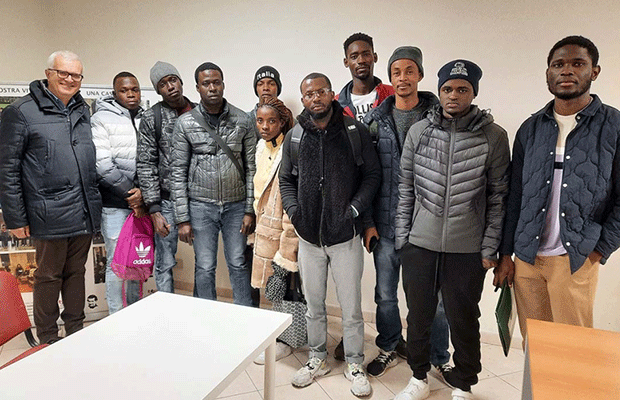
Tenin. Mamadou. Bernard. Suleyman. Their backgrounds are as diverse as their names, ages and countries where they were born. But all are united by one common purpose … to build better lives and futures in Italy, far from the con
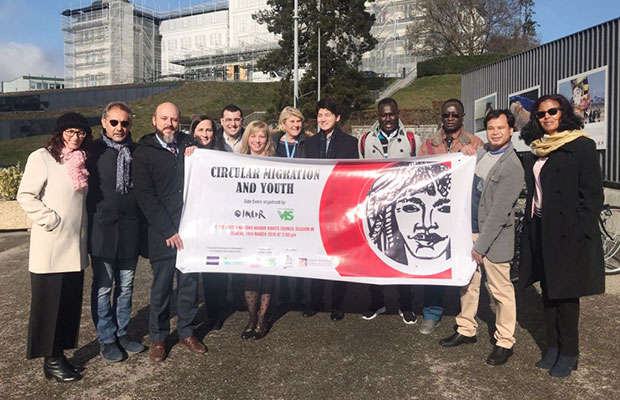
According to official estimates, global youth migration is on the rise. And while it’s challenging to pinpoint exact numbers, one thing is certain—thousands of marginalized young people leave their countries in search of work
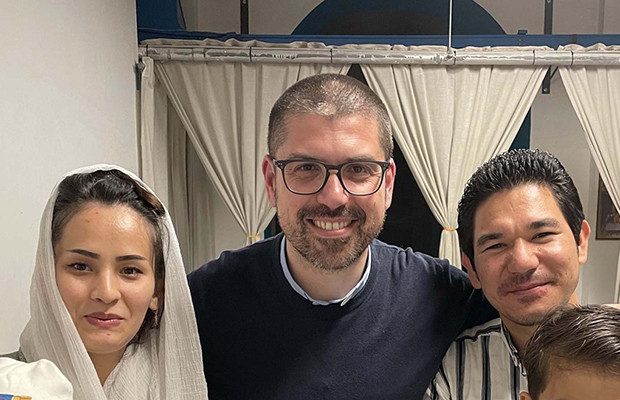
Under cover of night, Mustafa hurriedly loaded his expectant wife, in-laws, and first-born baby into a car and drove as fast as he could toward the border of Pakistan—where he prayed they would find safety from Afghanistan’s i
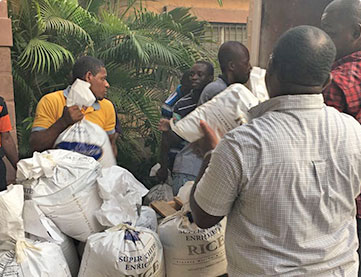
Salesian Missions includes agriculture in its vocational training programs – to ensure that youth of Rwanda learn better agricultural practices as well as keep the school self-sustaining in the face of the country’s food shortages.
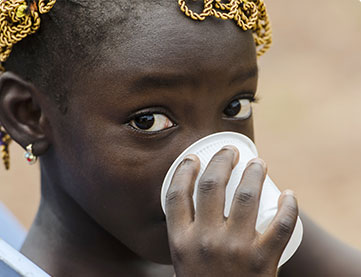
Salesian Missions includes agriculture in its vocational training programs – to ensure that youth of Rwanda learn better agricultural practices as well as keep the school self-sustaining in the face of the country’s food shortages.
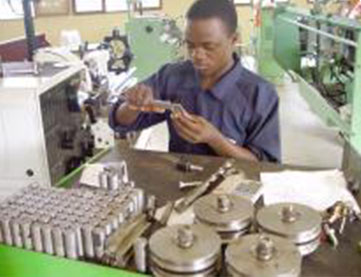
Salesian Missions includes agriculture in its vocational training programs – to ensure that youth of Rwanda learn better agricultural practices as well as keep the school self-sustaining in the face of the country’s food shortages.